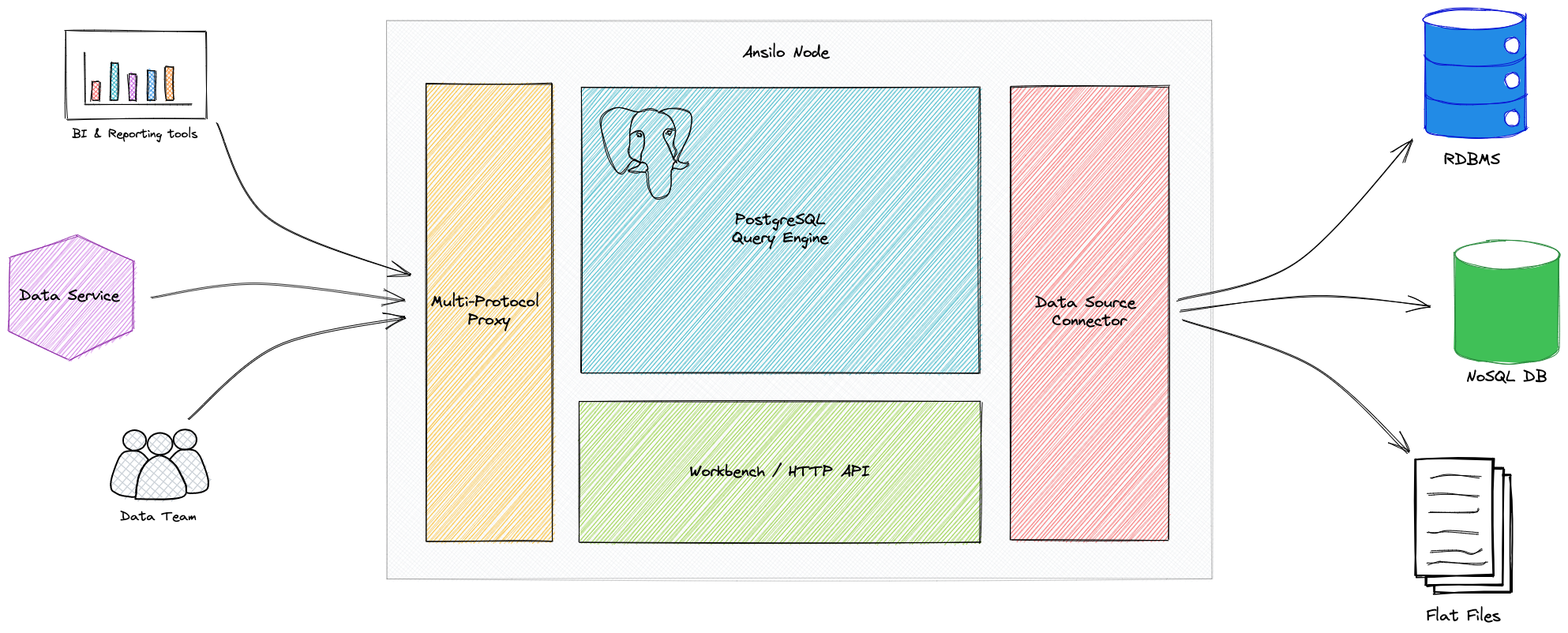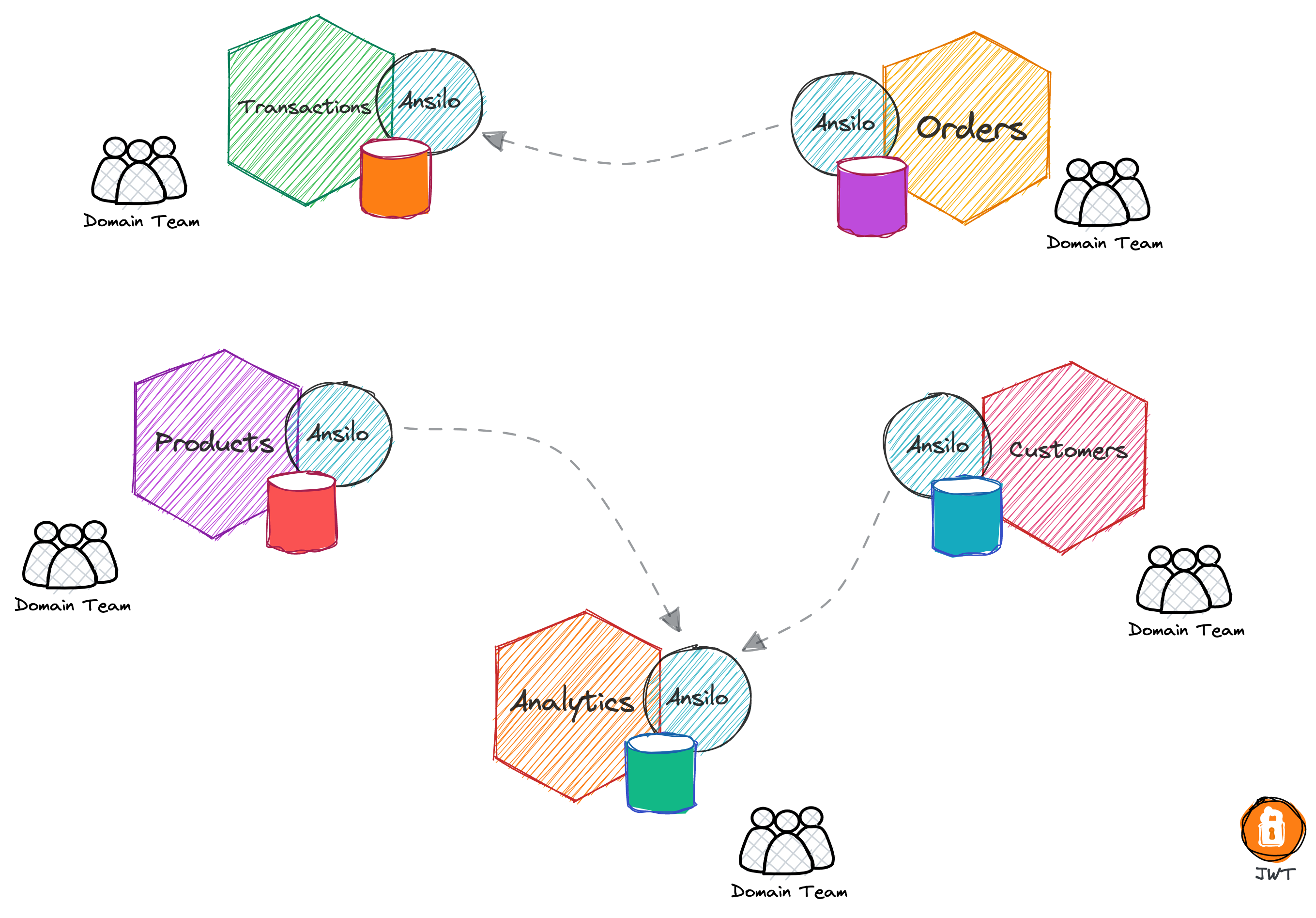Ansilo is a stateless postgres container with JWT auth and a universal foreign data wrapper, making it simple to build interopable data products on top of your existing databases.
The vision for Ansilo is to massively reduce the burden of having data spread across multiple databases or vendors by leveraging PostgreSQL and SQL/MED to provide a simple and standards-compliant interface to query, copy or move data across disparate systems.
Check out our getting started guide.
Ansilo is designed to help you expose analytical data from your applications and make it easy for others to consume. It does this by exposing postgres views into your underlying database.
It enables efficient query execution by transpiling postgres-style SQL queries into the equivalent queries to be run on the underlying platform. Yet still supporting powerful postgres-specific SQL by running the necessary parts locally. See supported databases.


name: Customers
networking:
port: 65432
auth:
users:
- username: demouser
password: mysupersecret!
sources:
- id: mysql
type: jdbc.mysql
options:
jdbc_url: jdbc:mysql://my-customers-data-store:3306/db
properties:
user: ${env:MYSQL_USERNAME}
password: ${env:MYSQL_PASSWORD}
build:
stages:
- sql: ${dir}/sql/*.sql-- Create a schema for our data source
CREATE SCHEMA sources;
-- Import customers table from mysql
IMPORT FOREIGN SCHEMA "db.customers"
FROM SERVER mysql INTO sources;
-- Expose data products
CREATE VIEW public.customers AS
SELECT
id,
first_name,
last_name,
email,
gender,
country
FROM sources.customers;
-- Grant access the view
GRANT SELECT ON public.customers TO demouser;
-- Document the schema
COMMENT ON VIEW public.customers IS 'The customers of our organisation';
COMMENT ON COLUMN public.customers.id IS 'UUIDv4 identifier';Use any postgres-compatible driver from any language, tool or psql to query your data.
Ansilo also exposes a web interface which can be used to execute basic queries without installing additional software.
Other Ansilo nodes may query or modify the data from your node by referencing it in their sources.
Check out our documentation for more examples.
Ansilo is source-available and released under the BSL 1.1 license.
